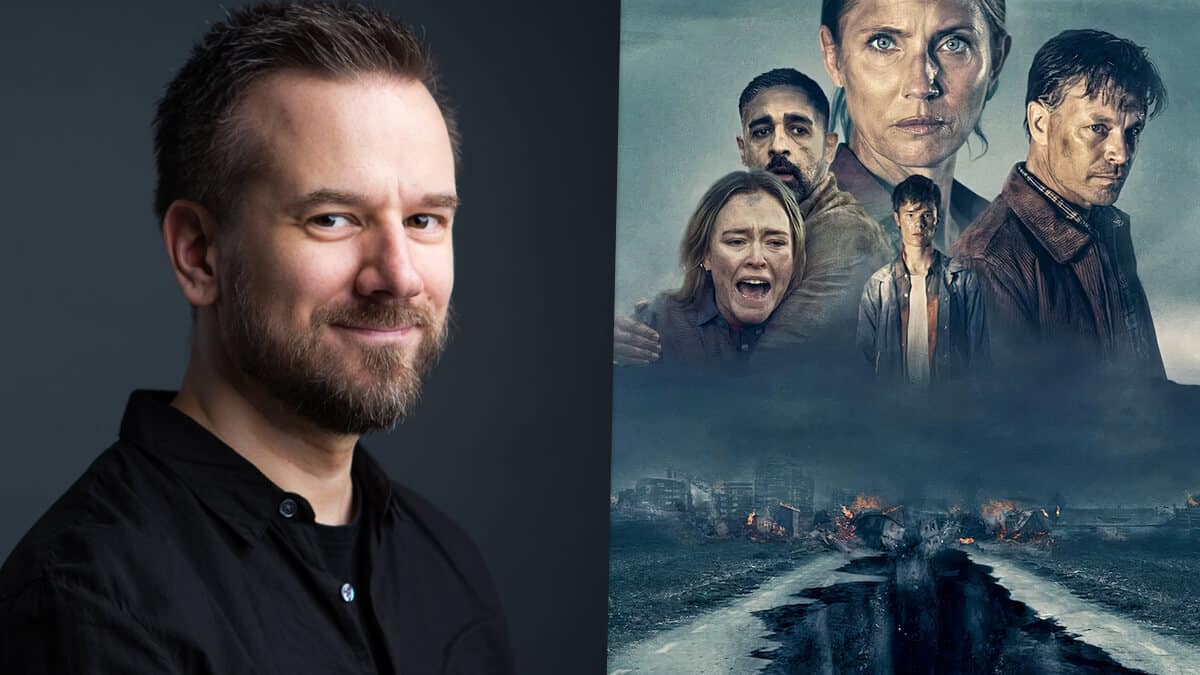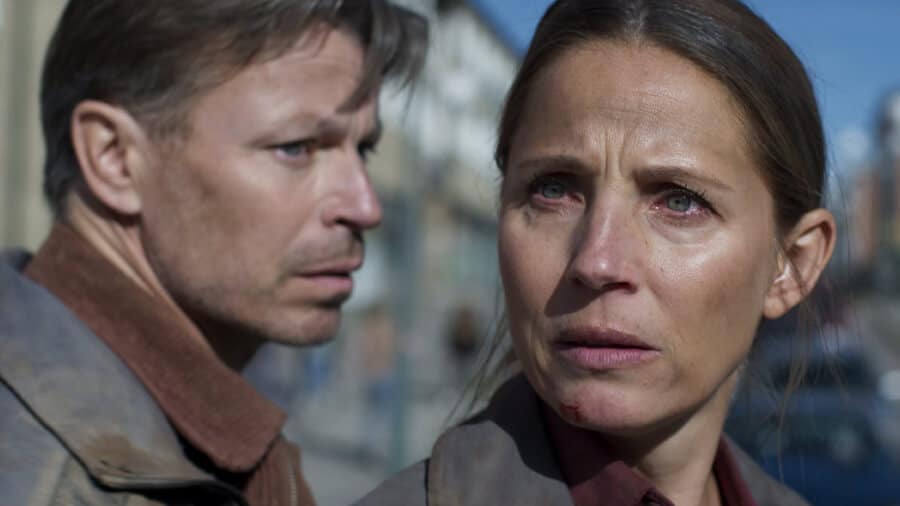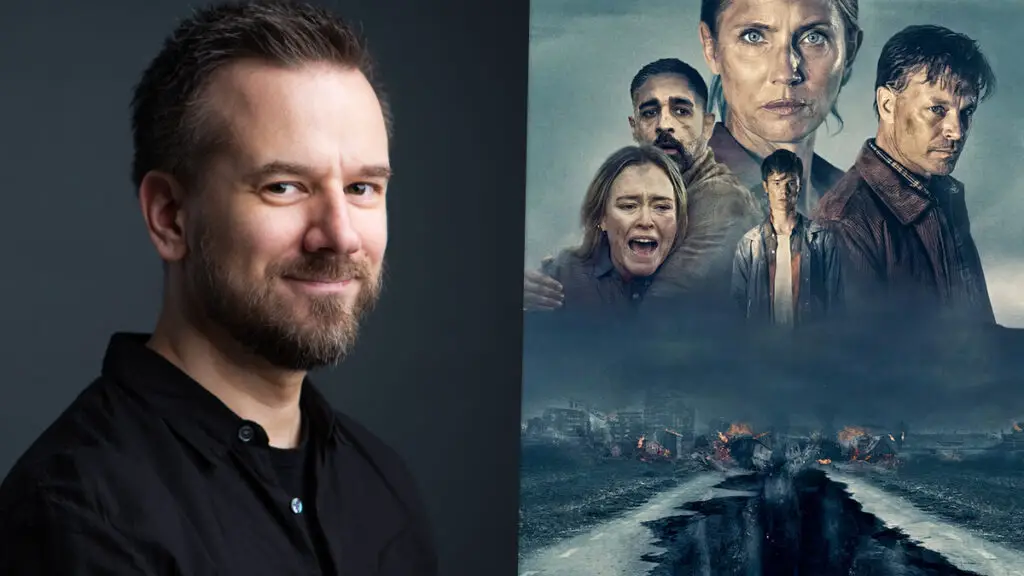
Photo credit: Laura Malmivaara and Netflix
There’s no one who doesn’t like a good disaster movie like this. Armageddon or the day after tomorrow? Maybe that’s why it’s Sweden’s new disaster thriller.? abysslooks like it’s going to be a home run with this movie added to Netflix’s lineup and currently the number one non-English movie in the world.
The Abyss is set in the real-life Kiruna, Sweden’s northernmost town, but in 2014 the town had to slowly start moving three kilometers east due to the threat of mine subsidence. Directed by Richard Holm (The Machinery), the film will be released in Sweden in September 2023 (as Avgrunden) and stars Tuva Novotny (Annihilation), Peter Franzen (Black Lotus) ”) and Cardo Lazzazzi (“Das Rheingold”). The official synopsis for the film is as follows: As the Swedish town of Kiruna sinks, Frigga is torn between her family and her job as head of security for the world’s largest underground mine. In addition to thrilling rides, composer Lasse Ennersen (there’s something in the barn), which used a handmade Soviet-style synthesizer (Thaumasin Se) creates a very organic sound. You can listen to the film’s score here.
Learn more abyss Regarding the score, we conducted the following Q&A with Mr. Lasse.
WON: First of all, how did you become involved with The Abyss?
I previously worked with director Richard Holm on seasons 1 and 2 of the Machinery TV series. We really hit it off and shared the same kind of passion for movies. He’s a very interesting director and never does anything boring. On top of that, he’s one of the nicest humans you’ll ever meet.
WON: How would you describe the score for this film?
create a score for abyss This was an emotional journey that reflected the dual stories of a city on the brink of disaster and a family grappling with its collapse. My approach was to meld these themes and treat the crumbling city and the disintegration of the family as one of his stories. The music not only highlights the horror of a mine collapse and the city’s descent into chaos, but also delves into the delicate emotional landscape of a family moving toward divorce. The goal was to create a soundscape that encapsulates the range of emotions that such an event evokes, echoing beauty amidst despair. If you don’t care about the family or the characters, the intense scenes in the mines won’t be as effective. Your connection to the characters raises the stakes significantly.
WON: Did director Richard Holm have a pretty clear idea of how he wanted the score to sound, or were you able to convey your ideas to him?
He was certain that the score would be both emotional and unsettling. Then he made me think about how exactly to achieve this musically.
WON: The atmosphere of The Abyss is quite different from the previous work. there’s something in the barn. Which of these genres do you think is more difficult to tackle: comedy/horror or action/thriller?
I don’t think the challenge lies in the genre, but rather in understanding the underlying drama and emotional subtext of a particular scene and its place within the overall film. This difficulty is greatly alleviated if the script is good, as is the case with both of these films. Then it becomes important to build a really good team with the director, based on integrity and a shared passion for telling this particular story. You must be able to ask seemingly simple questions such as “I don’t understand this scene. What should I do?” Could you please explain?
WON: What do you think is the key to creating film music for a disaster movie like The Abyss?
When you decide to watch a disaster movie or any other movie genre, you probably have certain expectations. As a composer, I want to meet these expectations, preferably in new ways. The expression “same but different” comes to mind. And, as I said before, I think it’s important to have people care about the characters and understand their inner emotional world in order to get excited about intense scenes. Therefore, a careful balance must be struck to avoid making the score too action-packed or too soft and emotional.
WON: Can you talk about the choice of instruments in the score?
The score primarily uses electronic and sound design elements during the film’s intense sections, with emotional scenes highlighted by piano and strings. My primary synth was a vintage Soviet-style synth called the Soma Synth, known for its amazingly organic sound and beautiful imperfections. I also used Cycling ’74:s MAX to create myself a completely new synth inspired by Soma’s Lyra 8, but as a kind of turbocharged version. The score’s fear factor is built on a slow, gliding synth bassline, evoking the unsettling feeling of an unpredictably fluctuating Earth. This sense of instability is further amplified within the claustrophobic confines of the mine, where programmed synths mimic the harrowing sounds of malfunctioning alarm signals rather than traditional musical notes. A recurring motif within the score is a constantly descending chord progression, symbolizing a relentless sense of sinking and a lack of stable foundations, much like the fate of a city or a family. This effect is achieved by using a piano with a large amount of delay, allowing the chords to cascade down the mine shaft and reverberate back.


Photo: Netflix
WON: What was the most difficult scene to score? Why?
It was a scene towards the end of the movie, but I can’t say too much about it without spoiling it. I didn’t fully understand it at first. After discussing the scene with the director, he clarified the crux of the scene in just a few words. This allowed him to quickly compose the music for that scene, which became one of our favorite cues of his in the movie. This is a dream scenario for collaboration with a director.
WON: Congratulations on getting this movie to number 1 on Netflix. This is a huge accomplishment. What does it feel like?
It’s incredibly rewarding. I’m lucky to live in a time when relatively low-budget Swedish films (co-produced with Finland) can compete with big-budget Hollywood films in terms of audience numbers. Netflix has changed things.
WON: Is there anything else you would like to add about the score for The Abyss?
I feel incredibly lucky to have been able to work with such a great director as Richard Holm, with Ansi Reino’s amazing cinematography, beautifully edited on video screens, and supported by such a great cast. I’m really enjoying every moment.
Wong: What are you working on next?
I am currently composing music for Aku Louhimies’ TV series ‘Conflict’ and previously collaborated with him on ‘Unknown Soldier’. A political thriller that puts Finland under military threat.
